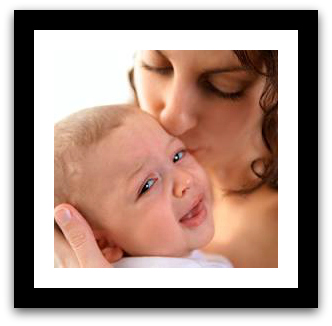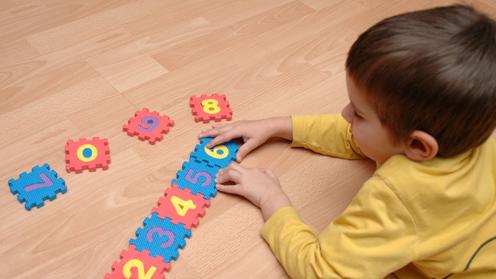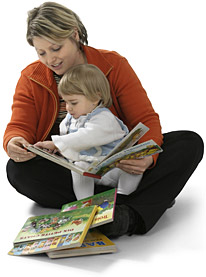Every baby cries at one point in time or another. This behaviour is quite normal. Most toddlers cry for around one to three hours every day. It is important to understand that a baby completely depends on your for warmth, comfort and food. Crying is your baby’s most common way of communicating her needs, and ensuring a clear response from you. Sometimes, it can be quite hard to figure out what your baby’s trying to tell you. However, as time passes by, you will learn to recognise exactly what your baby needs.
When your baby grows, she will learn many other ways to communicating with her parents. Her eye contact will be much better, smiles would be more prominent, and noises would be loud. Thus, the need for crying to grab your attention will be reduced. In the meantime, you need to learn some common reasons why your baby’s crying. In this post, we’ve discussed 7 such reasons to help you take necessary steps.
Hunger
This is one of the most common reasons for your baby is crying. When your baby is young, she’s more likely to be hungry. Since a small baby’s stomach is unable to hold a lot of food, you should offer her milk when she starts crying.
Even if you fed her just a while ago, she could still be hungry. When you’re breastfeeding your baby, she may be hungry on a frequent basis. However, if you’re formula feeding, she won’t be hungry if she’s been fed within the last couple of hours.
Nappy Change
In case your baby’s clothes are too tight or she’s being bothered by a soiled or wet nappy, she may protest. Some babies don’t mind a full nappy. In fact, they enjoy the warm feeling. However, if your baby has tender skin, she may get irritated and start crying.
Too Hot or Cold
Most of the babies hate being bathed or getting their nappy changed. A baby may not be quite used to the feeling of cool air on the skin. She would rather want to be warmed up and bundled. However, it won’t take long before learning to change your baby’s nappy quickly. Here are some excellent tips to make sure your baby is neither too hot nor cold :
● You should not overdress your baby. However, she will still need one more layer of clothing to feel comfortable.
● You need to use cellular blankets and sheets as your baby’s bedding. If you want to check your baby’s temperature, you should feel her tummy. In case it feels too hot, you should remove the blanket. Similarly, if it feels cold, you should add one.
● Since your baby’s hands and feet would mostly feel cool, you should not be guided by them. The temperature of your baby’s room should range between 22-25 degrees Celsius.
● In case your baby is sleeping with you, you need to keep her in contact with you. This will raise her body temperature and keep her warm.
● If your baby is sleeping on a cot, you should let her sleep on her back. Her feet should be at the end of her cot. This way, she won’t get entangled in the blankets or feel too hot.
Physical Contact or Reassurance
This is another common reason why your baby may be crying. Babies need a lot of physical contact, reassurance and cuddling. Your baby may just want to be held. You should keep her close to you, and sing to her. It may calm her down.
Many parents are worried about spoiling their babies because of holding them too much. However, it’s not possible during the first few weeks of her life. Babies need a lot of physical contact to feel safe and secure. In fact, your baby may even be calmed by listening to your heartbeat.
Proper Rest
Most of the time, babies are unable to sleep because they’re very tired. It won’t take long before you learn the baby’s sleep cues. Crying and whining over menial things, going quiet, staring blankly into space are some common indications that your baby wants rest.
In case your baby received a lot of cuddles and attention from visitors, she may have been over stimulated. Therefore, when it comes to taking rest and sleeping, she won’t be able to just settle down. You should carry your baby to some place quiet, calm and cosy. You should try to establish some good sleeping habits.
Feeling Sick
It is important to be aware of certain changes in your baby’s psyche and physiology. If your baby is unwell or sick, she’ll cry in a different tone. Her crying may seem more urgent, weaker, high pitched or continuous. Similarly, if your baby cries a lot, but suddenly went unusually quiet, it may be a sign of sickness.
As a parent, there’s no one else who would know and understand your baby better than yourself. If you think there’s something wrong, you should consult a doctor and talk about your concerns. If your baby shows difficulty breathing or the crying is accompanied by vomiting, constipation, fever or diarrhoea, you should immediately call a doctor.
Need Something, But Not Sure What
At times, you may be unable to figure out what’s making your baby cry. There are many newborns who go through some rough patches. It is very hard to comfort these babies. Their unhappiness may be caused by a lot of different factors. They may cry for several hours at a stretch. This constant state of crying is called colic. Colic is a common state in which a baby cries for at least 3 hours per day, minimum 3 days in a week.
Most of the parents find it very hard to deal with this condition. In fact, it can put the whole family under stress. It is worth mentioning that Colic does not have a magic cure. However, in most cases, it does not last for over 3 months. You need to accept this condition and understand that it will be resolved in some time. You can look for some valuable information to cope up with Colic. There are many strategies which can help you accept and manage this condition in your baby.









